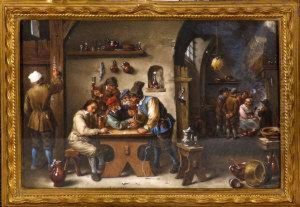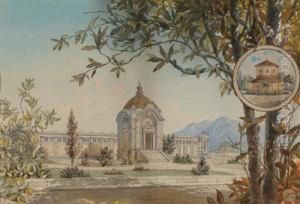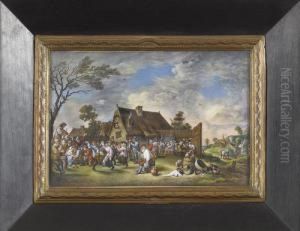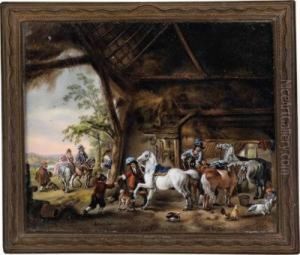Albert Schumann Paintings
Albert Schumann was not primarily known as an artist in the conventional sense but rather as a significant figure in the circus world. Born on February 17, 1858, in Frankfurt am Main, Germany, he hailed from the renowned Schumann family of circus performers and proprietors. His father, Gotthold Schumann, had founded the Circus Schumann in the mid-19th century, which Albert later took over and transformed into one of the most prestigious circuses in Europe.
Albert Schumann initially trained as a horse rider and developed a reputation for his equestrian skills. He was particularly known for his 'high school' riding, which involves performing sophisticated maneuvers with horses. As he took the reins of the family business, he expanded the circus's range and repertoire, introducing new acts and focusing on the quality and refinement of the performances.
Under Albert's leadership, Circus Schumann became renowned for its artistic approach to circus entertainment, emphasizing skill and beauty over mere spectacle. Albert's dedication to the art of circus performance led to collaborations with other circus families and expansion across Europe. The Schumann circus was particularly popular in Denmark, where it performed regularly.
Despite his success, Albert Schumann faced challenges, including the economic difficulties posed by World War I and the changing landscape of entertainment. The rise of cinema and other forms of mass entertainment began to eclipse the traditional circus by the early 20th century.
Albert Schumann's influence on the circus arts was significant, and his legacy is remembered in the world of circus performance. He passed away on January 13, 1939, in Berlin, having contributed considerably to the development and artistry of the circus during his lifetime. Although not an artist in the traditional sense of painting or sculpture, Albert Schumann's artistic vision and dedication to the circus arts have left an indelible mark on the history of performance art.




